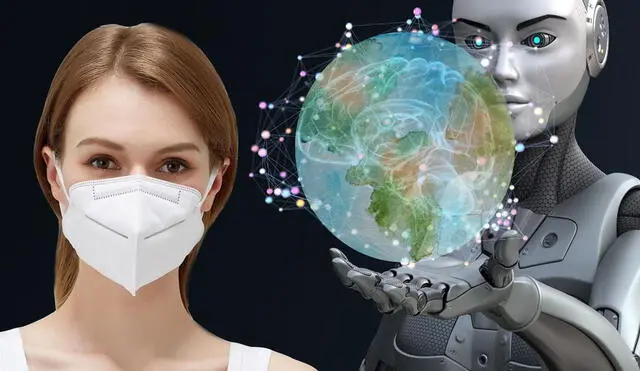Why could AI be a threat to human health? Experts warn of its dangers
Several scientists published a report on the dangers of artificial intelligence on people's health, which could be highly harmful if the authorities do not act in time.

Artificial intelligence has become a very useful tool for society today. Along these lines, companies specialized in creating AI-powered digital platforms claim that these services will improve people's quality of life, a vision that is shared by companies such as OpenAI. However, medical health experts have a very different opinion and even consider it a threat to humans.
A recent report published in BMJ Global Health, carried out by a team of doctors and health specialists from different regions of the world, warned that AI could represent a series of "threats to human health and well-being" if control measures are not established for its accelerated evolution, since, rather than benefits, its effects would be harmful.
What are the threats of AI to people's health?
In the BMJ Global Health study, it is highlighted that the opportunity to prevent serious and existential damage is increasingly diminishing, which is why it requires the intervention of the authorities in order to establish regulations that guarantee safety in the use of artificial intelligence (AI).
This group of experts from the US, UK, Australia, Costa Rica and Malaysia identified three scenarios in which AI poses a danger to human health: the control and manipulation of people, the development of lethal autonomous weapons and a negative impact on employment. The specialists warn that the rapid evolution of AI technology could be a "serious threat to humanity".
The consequences of AI on public health
The publication poses a hypothetical scenario in which politicians could use artificial intelligence technology to generate false information that would affect their opponents in order to achieve power through manipulation.
"When combined with the ability to rapidly improve to distort or misrepresent reality with deepfakes, AI-powered information systems can further undermine democracy by causing a general breakdown of trust or by driving social division and conflict, with consequent impacts on public health," reads the BMJ Global Health document.
On the other hand, the article includes the opinions of specialists such as Geoffrey Hinton or Eliezer Yudkowsky, who maintain that AI could generate a serious social crisis by replacing several jobs, which would consequently affect people's mental and financial health by being exposed to situations of instability.
Finally, the document states that AI has reached an unusual level of evolution, since it is now capable of self-improvement, which would allow it to take charge of absolutely all the systems that guarantee the correct functioning of human society.

 IHRO NEWS
IHRO NEWS